We all enjoy those brutal workouts – the ones where we train to failure and then take our post-workout selfie on the floor covered in sweat, unable to move because of the intensity and the effort we just put forth. However, training like that constantly can seriously ambush your fitness goals and in some cases, actually move you farther away from what you are trying to achieve. Systematic planning with heavy, moderate, and sometimes even lighter days will assist in keeping us functional while allowing for much needed recovery.
General Adaptation Syndrome
General Adaptation Syndrome (GAS) is the theory of how our bodies react to stress: Alarm, Resistance, Exhaustion. This theory was developed for general physiology before ever applied to training, but eventually became a key concept in the development of periodization.

General Adaptation Syndrome
Applying GAS to strength training means that those who train must give their muscles enough recovery in order for them to rebuild and regrow. When we train, we cause microtears in the muscle. This “damage” causes our bodies to respond. If the damage is new or more than we are used to, we start adapting; we become sore or fatigued. The response to this stress can last hours or weeks depending on the amount and the recovery ability of the person. The body adapts and either returns to baseline or elevates our capacity in order to “come back stronger” (supercompensation). If we as athletes do not allow for proper recovery, then we will not be able to take that step and improve performance. In other words, if you are constantly stressing your body and not allowing it to recover properly you will plateau or in some cases, decline, in strength or muscle gains. This is where overtraining occurs.
Stimulus-Fatigue-Recovery-Adaptation
Another theory, the stimulus-fatigue-recovery-adaptation theory, states that the response to training stimuli depends on the magnitude of that stimuli. In simple terms, the more intense the workout, the longer the recovery. That being said, complete recovery is not always necessary in order to begin training again. This is where different loads and repetition ranges come into play.
A good coach or trainer will understand proper periodization and help with developing a solid plan in order to maximize gains yet not overtrain. This is also the reason that performance athletes “deload” before a meet or competition. Increased volume or workloads in the workout WILL lead to increased fatigue. The deload (lower volume/workload) will keep blood flowing and allow the athlete to practice the movements while maintaining their energy and decreasing fatigue before a meet/competition in order to bring their best.

Recovery does not just depend on rest days or deloads. Nutrition, sleep, and other stress factors can affect recovery. Proper periodization, nutrition, sleep, overall life satisfaction AND listening to your body can help to avoid overtraining and ensure proper recovery.
Undertraining
Now, on the opposite side of this spectrum is undertraining. This is where one does not provide enough stimulus, volume, frequency and/or intensity to the muscles. If the frequency of your program is low, make sure you bring the utmost intensity to your lifting workouts – and vice versa. Overtraining IS real – but so is detraining or undertraining. Without a new stimulus, detraining can occur if the body remains inactive or even under the baseline for too long.
Programming
Recovery days may be different for everyone. Most powerlifting programs allow for anywhere from 1 to 4 days of off from training during the week. This is dependent upon years of experience with training and/or the program in which you follow. Other programs may keep some form of training most days, but provide lighter deload days or whole periods for the body to recover.
One important thing to note is that every individual is different when it comes recovery time. Some people may respond well to higher volume and higher frequency, and others may not. It is important to follow your program, BUT it is also important to listen to your body. If you need a recovery day (or even week) then take it if it is real fatigue you are feeling. This doesn’t mean you just don’t feel like going to the gym – REAL fatigue. Make sure your program is making the most of your body’s ability to recover and check in with your nutrition, sleep, and the other stressors in your life.
All About Balance
In conclusion, it is all about BALANCE. Maximizing the gains and taking advantage of the window in which our highest level of improvement can occur without allowing ourselves to overtrain is what we are all trying to achieve. Practice, balance, self-awareness, and proper programming is how we will get there.
Train hard (but smart). EAT, SLEEP, and enjoy life.
Heather & Katie
The Power Couple
Are you prepared to ignite your fitness journey? Start by tuning in to our podcast, ‘Stronger than your Boyfriend,’ for expert guidance and tips. Then, take it to the next level by exploring our programs! Whether you’re hungry for workout knowledge or personalized assistance, we’ve got you covered. Transform your body and mindset today. Hit play on the podcast and explore our programs to conquer those fitness goals together!



